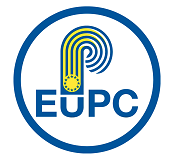2023
The plastics packaging value chain calls for a science-based and material-neutral policy framework
Please find bellow a new open letter of the Plastics Packaging Value Chain, represented by several branch associations:
The plastics packaging value chain calls for a science-based and material-neutral policy framework that ensures the competitiveness of the European plastics packaging industry and supports its transition to the EU’s 2050 net zero and circularity goals
The undersigned associations representing the views of the plastics packaging value chain support the EU’s objective to achieve a circular economy and call for a regulatory framework that supports and further accelerates the circularity of plastic packaging through additional innovation and investments.
Europe needs a truly sustainable plastics packaging system which is able to compete globally. Against this backdrop, we support an EU policy framework aimed at the best overall environmental improvements without discriminating one specific material against the others.
We are therefore particularly concerned about the direction taken by the current policy discussions in the negotiations on the Packaging and Packaging Waste Regulation (PPWR) proposal both in the European Parliament and Council.
Several provisions in the PPWR clearly show an increasingly less material neutral approach. This is for example the case of Article 38 which draft compromise amendment in the European Parliament currently includes a material specific target of waste reduction for plastics only. Furthermore, the latest Council Presidency proposal for Article 38 would enable a partial increase of waste generation per packaging material with the sole goal of avoiding the shift towards lighter materials like plastics.
This holds true also for the Reuse targets set out in Article 26, which should fairly apply to all materials. While the undersigned associations support measures increasing the reuse of plastics when it provides clear environmental benefits, we believe that exempting only a specific material from the reuse measures would create an unfair competitive advantage, without improving the circular economy of packaging. Furthermore, several measures in the Annex V of the proposal, aimed at reducing the amount of single use packaging, risk applying to plastics only, continuing to allow the use of single use formats if made by other materials.
Although the approach to increase packaging sustainability by restricting plastics packaging formats may seem politically attractive to some stakeholders, it is likely to increase the climate impact of packaging, creates business uncertainty and undermines the case for the billions of euros of investments that the European plastics packaging industry has been making and planned to transition to net zero and circular models.
Arbitrary bans aimed at discriminating solely against plastics packaging or restricting highly recyclable and already widely recycled formats (such as those for the HoReCa systems, fresh products and grouped packaging) only frustrate the developments of innovative green technologies and circularity solutions of the European plastics systems and lead in many cases to a regrettable substitution of restricted uses with alternative packaging materials without neither a thorough impact assessment fully covering the scope of the proposed restriction nor proven environmental advantages. This approach will result in a declining and uncompetitive European plastics industry which is unlikely to help the EU meet its circularity and 2050 climate targets and also create uncertainty for the circularity transition of other packaging materials who have to fear a similar fate in the future.
As confirmed by the 2022 independent ReShaping Plastics report, the substitution of plastics with other materials provides very limited scope for reaching net zero emissions. Several studies on the climate impact of plastics also highlighted that plastics have a lower total GHG contribution than alternatives in most applications.
The undersigned associations call on policymakers to ensure that the PPWR remains a material neutral EU policy framework, aimed at creating the enabling conditions to accelerate the circularity of all parts of the packaging industry. EU rules on packaging should therefore limit restrictions only to packaging formats that do not meet the recyclability requirements as established in Article 6, rather than banning plastics packaging formats which are fully recyclable and recycled. We stronglysupport an ambitious proposal that creates the positive investment climate enabling the European plastics system to continue its sustainability journey. This includes a technology and material-neutral regime aimed at implementing harmonised design-for-recycling criteria, increasing the uptake of recycled content in all plastics packaging, massively upscaling collection, sorting and recycling and kickstarting reuse in many applications.



Download